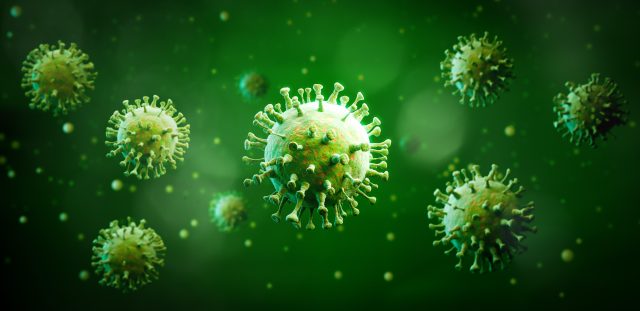
Student Health Services is offering influenza and COVID-19 booster vaccines for students, faculty and staff at the Student Health Center.
According to the Centers for Disease Control (CDC), the COVID-19 booster vaccine can help an immunocompromised individual’s immune response after receiving two doses from a COVID-19 vaccine. The CDC also notes that flu vaccines can prevent serious illness, especially for those who have other underlying health conditions like cardiovascular issues.
“I mean, ultimately, it’s a good thing,” Alexander Laporte, a freshman majoring in atmospheric sciences and oceanography, said about the school offering vaccinations. “It’s [great] that there’s access to [these vaccines], so that people can be properly vaccinated and be protected from the viruses.”
The Student Health Center is open on Monday, Wednesday, Thursday and Friday from 8 a.m. to 5 p.m. and Tuesdays from 8 a.m. to 7:30 p.m. Students can call Student Health Services to make an appointment or schedule an appointment in the Wolfie Health Portal.
“Every year, we have always offered flu vaccines for our students and there’s no charge to them,” Karen Dybus, assistant director of Operations and Patient Services and a physician assistant, said. “Our providers and nurses are mindful to ask students whether they’ve been vaccinated or are interested in vaccination especially for those who are of higher risk.”
The Student Health Center has been offering both vaccinations since the beginning of the semester.
The CDC suggests people who are immunocompromised should be vaccinated for COVID-19. The CDC also recommends that people aged 65 or older should get the flu vaccine.
“You don’t have to been seen by a doctor to get a flu vaccine,” Christina Tobar, a nurse manager at Student Health Services, said. “Students can call [the health center] and make an appointment to get a flu vaccine.”
Dybus also spoke about the importance in providing the COVID-19 booster and influenza vaccines on campus.
“It’s a public health measure for our smaller community as a whole,” Dybus said. “You’re not just protecting yourself, but you’re protecting those around you.”
Tobar explained the significance of vaccine accessibility.
“It’s important for everyone to have influenza and COVID vaccines because it’s all about prevention,” Tobar said. “The hope is to keep people out of the hospital and life-threatening situations with these illnesses.”
“A vaccine is not a 100 percent ‘shield-of-armor’ that will prevent an illness,” Tobar said. “The likelihood of the illness being severe will be diminished [when you’re vaccinated]. You still may receive the flu or COVID, but it will be less intense.”
According to the CDC, the flu vaccine reduces the likelihood of an individual getting the flu by 40 to 60% during the height of flu season. The CDC also reported that with each additional dosage of a COVID booster, the chances of severe illness are reduced.
Tobar highly recommends that students get the COVID booster shot, as well as the flu shot.
[Experts] predict this flu season, in particular, is going to be pretty bad so flu shots are definitely recommended and COVID boosters are always recommended to help us control the pandemic,” Tobar said.
Laporte plans to get vaccinated even though there is currently no mandated requirement.
“I haven’t gotten a flu shot in a while,” Laporte said. “I was going to get the booster, but I got COVID the day before my appointment. I’m definitely considering getting both [vaccines] at some point.”










